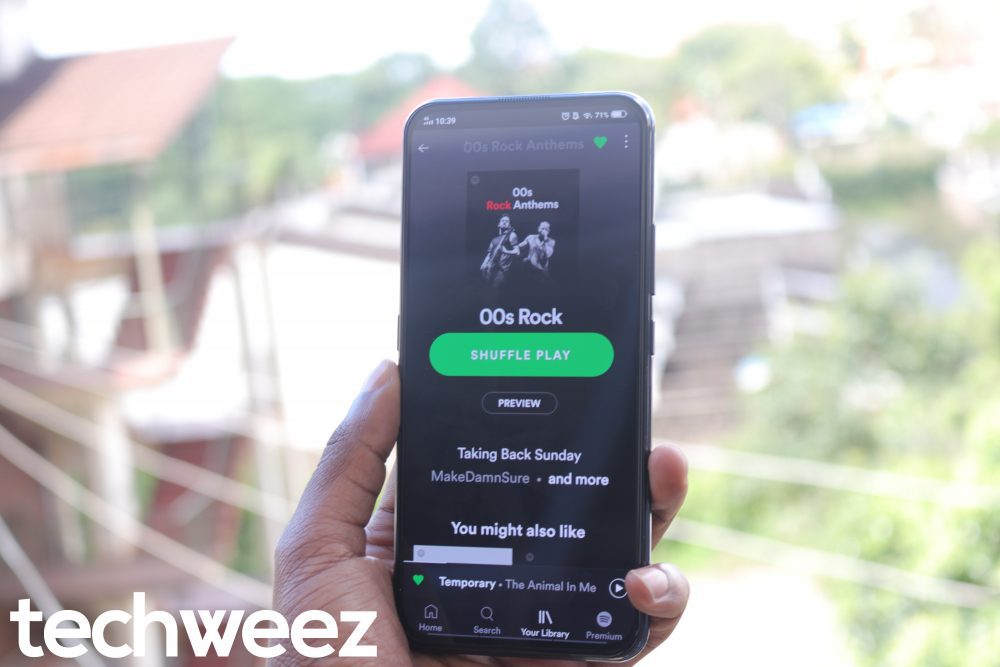
Spotify yesterday announced that they will launch in 80+ markets across the world in a few days and that includes Kenya. That is great news for those people who have wanted to use this service natively here in Kenya, but there is the big lingering issue: pricing.
The company’s announcement did not answer the question about how they would price in the markets. This means that we can intelligently guess how Spotify might decide to price for their streaming plans in Kenya.
Let’s start with what Spotify said in their release. They announced that they will offer Individual, Family, Duo and Student Plan premium options. If you’re not aware of these Spotify plans, this is their definition:
- Premium Individual is for one person
- Premium Student is for one person currently enrolled at an accredited college or university. You get 50% off a Premium subscription and upto 4 years on the discounted rate.
- Premium Duo is for two people living together where you get two premium accounts for one discounted price and you get a Duo Mix which is a playlist available in each account that matches both tastes.
- Premium Family allows you to setup 6 accounts for the price of one.
I will try to guestimate the prices of the plans mentioned.
The market price theory
One way Spotify can price its plans in Kenya is by playing along the current music streaming rates in dollars.
Apple Music charges $2.99 for an Individual plan, $4.99 for a Family plan, $1.49 for a Student plan and $29.00 for an annual individual plan.
Deezer charges $2.99 for a Premium individual plan, $4.49 for a Family plan, $4.49 for a Deezer HiFi plan and $26.91 for an annual plan. They also have a Deezer Free option which is akin to Spotify’s Free tier.
Spotify can decide to implement the current market prices for Kenyans where an individual plan costs $2.99, student plan for $1.49 and family plan for $4.99. The Duo plan is usually 30% more expensive than a single plan so Spotify may charge $3.99 for it.
The India experiment theory
Another way Spotify may price their streaming plans in Kenya is by implementing their strategy for India. They launched in India two years ago which was a big move for them since India is a country with over 1.2 billion people.
However, western corporations deploy a different strategy with India than in western countries where pricing is key. India is a huge economy but their GDP per capita is rated as a lower middle income economy due to its large population so a $10 premium subscription won’t cut it.
For starters, Spotify plans in India are quoted in rupees and they may decide to use Kenya Shillings for the Kenyan market. However, the strategy hinges squarely on their unique plans. I have converted rupees to Kshs as per the prevailing rates (as of writing this article) of 1 rupee being equivalent to Kshs 1.51.
- Premium Individual is 119 rupees (Kshs 180)
- Premium Individual Mini charges 7 Rupees a day where you can download upto 30 songs on one phone. (Kshs 10)
- Premium Duo charges 149 rupees where you can download 10,000 songs across 5 devices per account (Kshs 225)
- Premium Family charges 179 rupees for upto 6 accounts. (Kshs 271)
- Premium Individual for Students charges 59 rupees (Kshs 89)
I can see a situation where Spotify may charge the amounts above, rounded off to the nearest whole number for ease of payments. For example, Premium individual could be Kshs 180 a month, Individual mini could be Kshs 10 a day, Family could be Kshs 270 a month, Duo could remain at Kshs 225 and students get charged Kshs 90 a month.
I believe that this could be the best strategy for Kenya. For a price sensitive market like Kenya, this could work immensely for them. Every Premium subscription is cheaper than the equivalent market price in dollars and the addition of a daily Premium price is a popular move in markets like Kenya.




























